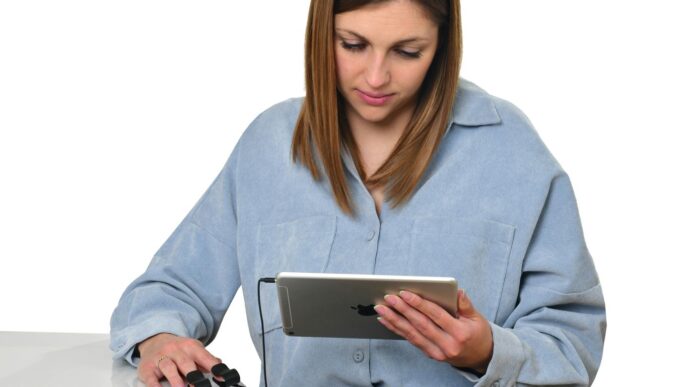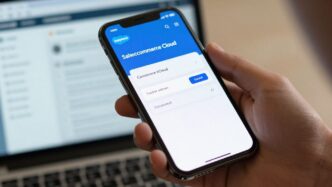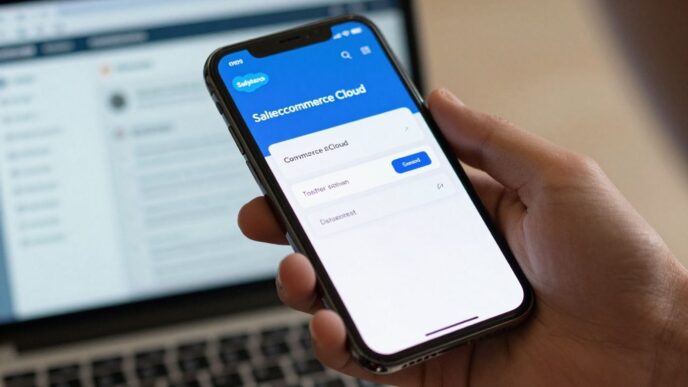Losing your Android phone can be stressful, but there are many ways to find it quickly. This guide will walk you through various methods to locate your lost device, ensuring that you can retrieve it with ease. From using built-in apps to smart speakers, we’ve got you covered.
Key Takeaways
- Use Google Find My Device to track your phone’s location easily.
- Make sure location services are enabled for better accuracy.
- Smart speakers can help you find your phone with voice commands.
- Bluetooth trackers can provide an extra layer of security for your phone.
- Always secure your device remotely to protect your data.
Using Google Find My Device
Setting Up Find My Device
To use Google Find My Device, you need to ensure it’s set up on your Android phone. Here’s how:
- Go to Settings on your device.
- Tap on Security.
- Select Find My Device and make sure it’s turned on.
Note: If you have a Google account linked to your device, Find My Device is usually enabled by default.
Locating Your Device on the Map
If you lose your phone, follow these steps to find it:
- Open a web browser on another device.
- Go to the Google Find My Device website.
- Sign in with your Google account.
- Click on your lost phone from the list.
- A map will show the last known location of your device.
If your phone is off, you’ll see its last location when it was online.
Using Find My Device to Ring Your Phone
If your phone is nearby, you can make it ring:
- On the Find My Device website, select your device.
- Click on Play Sound.
- Your phone will ring for five minutes, even if it’s on silent.
Tip: This feature is very helpful if your phone is just hiding under a couch cushion or in another room.
By following these steps, you can easily locate your lost Android phone using Google Find My Device. Remember, having this feature set up in advance can save you a lot of trouble later!
Enabling Location Services

Turning on Location Services
To find your lost Android phone, you need to enable location services. Here’s how:
- Open the Settings app on your device.
- Scroll down and tap on Location.
- Toggle the switch to turn on Location.
Improving Location Accuracy
To make sure your phone’s location is accurate, follow these steps:
- Go to Settings > Location.
- Tap on Location services.
- Enable Google Location Accuracy to improve tracking.
Checking Location Settings
It’s important to check if your location settings are correct. Here’s a quick checklist:
- Ensure Location is turned on.
- Verify that Find My Device is enabled in your Google settings.
- Make sure your device is connected to the internet.
Remember, if your phone is lost, having location services enabled can greatly increase the chances of finding it. Your smartphone will soon unlock or start your Volvo with these features, showcasing how technology can help in everyday situations.
Using a Smart Speaker to Find Your Phone
If you’ve misplaced your phone at home, your smart speaker can be a handy tool to help you find it. Here’s how to use it effectively:
Setting Up Your Smart Speaker
- Ensure your smart speaker and phone are connected to the same account.
- Make sure your smart speaker is plugged in and ready to listen.
- Check that your phone is within range of the speaker.
Using Voice Commands to Locate Your Phone
- Simply say, "Hey Google, where’s my phone?"
- Your smart speaker will respond by ringing your phone, even if it’s on silent or vibrate.
- This method is quick and effective for finding your phone if it’s nearby.
Limitations of Using a Smart Speaker
- This method only works if your phone is within earshot of the speaker.
- If your phone is turned off or out of battery, the speaker won’t be able to help.
- Smart speakers can’t locate your phone on a map, so this is best for quick searches at home.
Remember, using a smart speaker is a great way to quickly find your phone, but it’s not a substitute for more advanced tracking methods if your phone is truly lost.
Using Bluetooth Trackers
Bluetooth trackers are handy tools that can help you find your lost Android phone. These small devices can make locating your phone much easier. Here’s how to use them effectively:
Choosing a Bluetooth Tracker
- Look for a tracker that is compatible with your phone.
- Popular options include Tile, Chipolo, and Apple AirTag.
- Check reviews to find one that suits your needs.
Syncing Your Phone with the Tracker
- Download the tracker’s app from the Google Play Store.
- Create an account or log in.
- Follow the app instructions to connect the tracker to your phone.
- Ensure Bluetooth is enabled on your phone.
Using the Tracker to Locate Your Phone
- If your phone is lost, open the tracker app.
- Tap the "Find" button to make your phone ring, even if it’s on silent.
- If your phone is out of range, the app will show the last known location.
Bluetooth trackers are a great way to keep track of your belongings. They can save you time and stress when searching for lost items.
By using a Bluetooth tracker, you can have peace of mind knowing that you have an extra layer of security for your phone. Remember, these devices work best when they are within a certain range, so keep that in mind!
Securing Your Lost Device
When you realize your phone is missing, it’s important to act quickly to protect your personal information. Here are some steps you can take to secure your lost device:
Locking Your Device Remotely
- Use Find My Device: Sign in to your Google account and use the Find My Device feature to lock your phone.
- Set a New Password: If you can, change your Google account password to prevent unauthorized access.
- Notify Your Contacts: Let your friends and family know that your phone is lost, so they can be cautious of any unusual messages.
Displaying a Message on the Lock Screen
- You can display a message on your lock screen with Find My Device. This message can include your contact information, making it easier for someone to return your phone.
- To do this, go to the Find My Device website, select your device, and choose the option to display a message.
Erasing Your Device Data
If you believe your phone won’t be recovered, you can erase all data remotely:
- Go to Find My Device: Sign in and select your lost device.
- Choose Erase Device: This will delete all your personal information, but it will also prevent you from tracking it afterward.
- Confirm the Action: Follow the prompts to confirm the erasure.
Remember: Always back up your data regularly to avoid losing important information in case of loss.
By following these steps, you can help secure your lost device and protect your personal information from falling into the wrong hands. Act quickly to minimize risks!
Setting Up Alternate Contact Information
Adding Contact Info to Lock Screen
Setting up alternate contact information on your phone can be a lifesaver if you lose it. This simple step can help others return your phone to you. Here’s how to add contact info to your lock screen:
- For Samsung Devices:
- For Google Pixel Devices:
Benefits of Lock Screen Messages
Adding a message on your lock screen can significantly increase the chances of getting your phone back. Studies show that phones with these messages are three times more likely to be returned to their owners. Here are some benefits:
- Quick identification for anyone who finds your phone.
- Contacting you directly without needing to unlock the device.
- Peace of mind knowing that your information is accessible.
Steps for Different Android Models
Different Android models may have slightly different steps. Here’s a quick reference:
| Device Type | Steps to Add Contact Info |
|---|---|
| Samsung | Settings > Lock Screen > + Contact Information |
| Google Pixel | Settings > Display > Lock Screen > Add text on lock screen |
| Other Androids | Check Settings > Security or Lock Screen options |
Remember, having alternate contact information can make a big difference in getting your lost phone back. Always keep it updated!
Using Samsung’s Find My Mobile
Setting Up Find My Mobile
To use Samsung’s Find My Mobile, you first need to set it up. Here’s how:
- Open the Settings app on your Samsung device.
- Go to Biometrics and security.
- Tap on Find My Mobile and enable it.
- Make sure your Samsung account is linked.
Locating Your Samsung Device
Once set up, you can easily locate your device:
- Visit the Find My Mobile website.
- Log in with your Samsung account.
- Select your device from the list.
- A map will show your device’s location.
Using Additional Samsung Features
Samsung offers extra features to help you:
- Ring your phone: Even if it’s on silent, it will ring for 1 minute.
- Lock your device: Secure your data by locking your phone remotely.
- Erase data: If you think your phone is stolen, you can erase all data to protect your information.
Remember: For these features to work, your device must be connected to the internet. If it’s offline, you’ll see its last known location.
By using Samsung’s Find My Mobile, you can easily track your device and keep your data safe.
Preparing Your Device for Loss

Enabling Find My Device
To ensure you can locate your phone if it goes missing, you should enable Find My Device. Here’s how:
- Open your device’s Settings.
- Tap on Google.
- Select Security and then Find My Device.
- Make sure it is turned on.
Regularly Backing Up Your Data
Backing up your data is crucial. You can use Google Drive or other cloud services. Here’s a simple way to back up:
- Go to Settings.
- Tap on System.
- Select Backup and turn it on.
Setting Up Security Features
Setting up security features can help protect your data. Here are some important steps:
- Use a strong password or PIN.
- Enable biometric security (like fingerprint or face recognition).
- Turn on two-factor authentication for your Google account.
Remember: Taking these steps can help you recover your phone and protect your personal information if it gets lost.
Summary Table
| Feature | Steps to Enable |
|---|---|
| Find My Device | Settings > Google > Security > Find My Device |
| Data Backup | Settings > System > Backup |
| Security Features | Settings > Security > Passwords & Accounts |
By preparing your device for loss, you can minimize the stress and potential loss of important data if your phone goes missing. Taking these precautions is essential for every smartphone user.
Using IMEI Number to Disable Your Device
Finding Your Device’s IMEI Number
To disable your lost Android phone, you will need its IMEI number. This unique identifier can be found in a few ways:
- Settings: Go to your phone’s settings, then tap on "About Phone". Look for the IMEI number listed there.
- Find My Device: If you have access to the Find My Device app, you can find the IMEI by selecting your device and tapping the gear icon.
- Box or Receipt: If you still have the original box or purchase receipt, the IMEI number is often printed there.
Contacting Your Service Provider
Once you have the IMEI number, contact your mobile service provider. They can help you disable your device to prevent unauthorized use. Here’s what you should do:
- Provide them with your IMEI number.
- Request to block the device from their network.
- Confirm any additional steps they may require.
Limitations of Using IMEI Number
While using the IMEI number is helpful, there are some limitations:
- Not all devices can be tracked: Some devices, like certain tablets, may not have an IMEI number.
- Blocking may take time: It can take a while for the service provider to process your request.
- Not a foolproof method: If someone changes the IMEI number, they can potentially use the device again.
Remember, keeping your IMEI number safe is crucial. Write it down and store it in a secure place, so you can access it if needed.
Using Third-Party Apps
When it comes to finding your lost Android phone, third-party apps can be a lifesaver. These apps often provide additional features that can help you locate your device more effectively.
Popular Third-Party Apps
Here are some popular apps you might consider:
- Lookout: Offers security features along with location tracking.
- Cerberus: Provides remote control options and can take pictures of the thief.
- Prey Anti Theft: Allows you to track multiple devices and has a web interface.
Setting Up Third-Party Apps
To set up these apps, follow these steps:
- Download the app from the Google Play Store.
- Create an account and follow the setup instructions.
- Enable location services for the app to function properly.
Pros and Cons of Third-Party Apps
| Pros | Cons |
|---|---|
| Additional features available | May require a subscription |
| Can track multiple devices | Some apps may drain battery |
| Often user-friendly | Privacy concerns with data |
Using third-party apps can enhance your chances of recovering your lost phone, but always choose reputable apps to protect your data.
What to Do If Your Phone is Offline
When your Android phone is offline, it can be tricky to locate it. However, there are still steps you can take to find it. Here’s what you can do:
Checking Last Known Location
- Open the Find My Device app on another device or visit the website.
- Sign in with your Google account.
- Look for the last known location of your phone on the map. This can give you a starting point.
Using Location History
- If you have Location History enabled, you can check where your phone was last active. This can help you retrace your steps.
- To access this, go to your Google Maps app, tap on the menu, and select Your Timeline.
Waiting for Device to Reconnect
- Sometimes, your phone may reconnect to the internet after being offline. Keep checking the Find My Device app or website periodically.
- If your phone is turned off or the battery is dead, it may still be located for a few hours after it shuts down, depending on the model.
Tip: Make sure your device has the option to store recent locations enabled. This helps in locating your phone even when it’s offline.
By following these steps, you can increase your chances of finding your lost phone, even if it’s not currently connected to the internet. Remember, patience is key!
Final Thoughts on Finding Your Lost Android Phone
Losing your Android phone can be really stressful, but there are ways to make it easier to find. By using tools like Find My Device, you can track your phone’s location, play a sound to help you locate it, or even lock it to keep your information safe. Remember to set up these features ahead of time, so you’re ready if your phone goes missing. If you follow these steps, you’ll have a better chance of getting your phone back quickly. Stay calm, and good luck!













